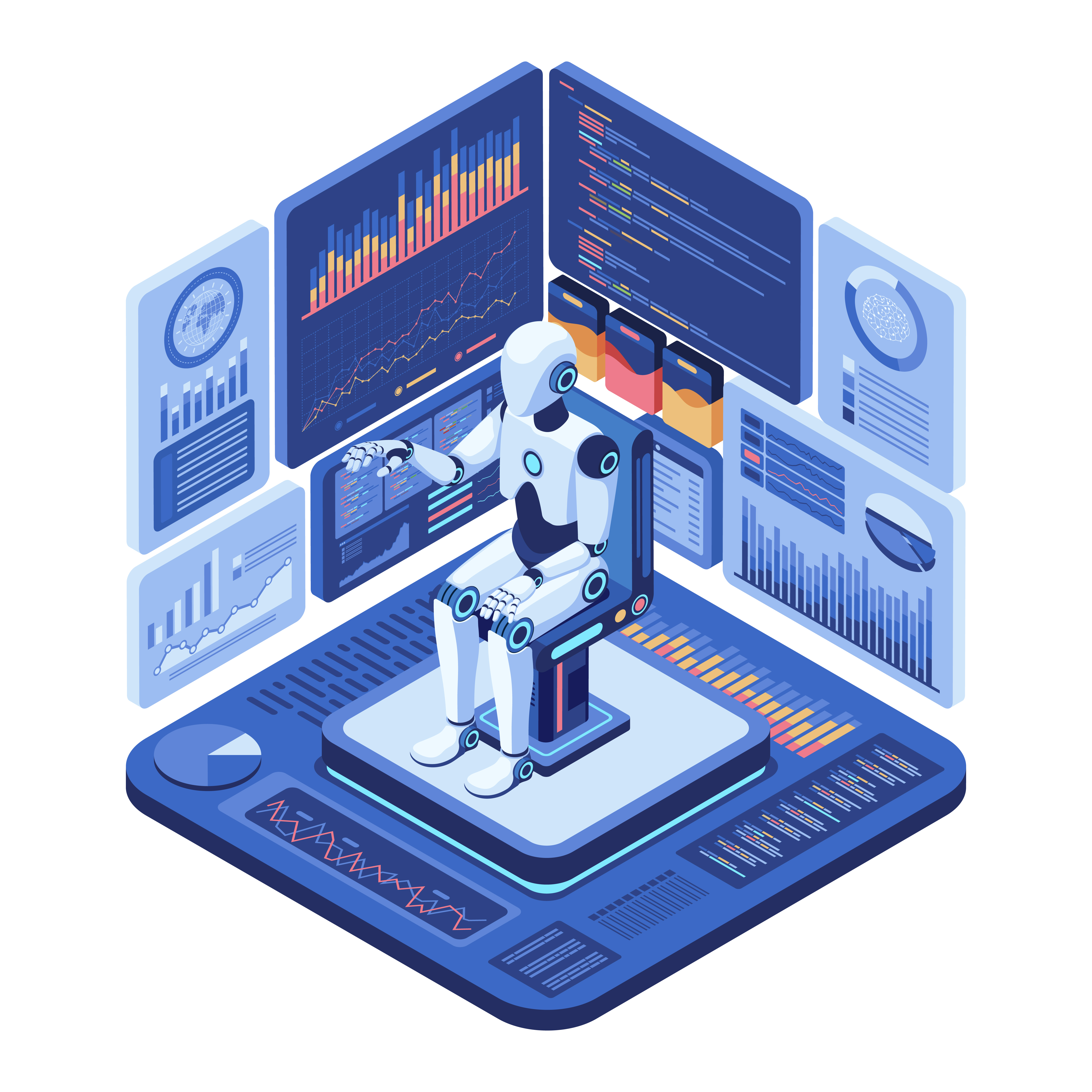How Microsoft’s Agentic AI Agents Are Changing Business

When My Coffee Ordered Itself…
It started on a Monday morning. I staggered into the office, bleary-eyed and desperate for my first coffee. A few sips later, I noticed something odd: my coffee machine had reordered its own beans. No Slack ping from me, no “please” or “thanks”, just bean pods arriving at my desk. I stared at it. “Autonomous,” I whispered. And I didn’t even yell at IT.
It’s a small moment, but one that encapsulates a much bigger shift happening across the business world. The idea that a machine can independently detect a need, act on it, and complete the task without human intervention has moved from novelty to inevitability. That little moment with the coffee machine didn’t just mark the start of my day. It marked the start of something far more transformative, something every business leader needs to take seriously.
We are now entering the age of agentic AI.
From Automation to Autonomy
For years, automation has been seen as the holy grail of efficiency. Robotic process automation (RPA), macros, chatbots, and integrations all promised to streamline repetitive tasks, reduce errors, and free up human time. And they did, up to a point.
But automation has limits.
- It does what it’s told.
- It follows rules.
- It reacts to triggers.
In short, traditional automation is excellent at doing the things you already know need doing. What it can’t do is think ahead, evaluate context, or adapt to changing circumstances without being explicitly programmed to do so.
This is where autonomous AI agents come into play.
Agentic AI doesn’t wait for instruction. It observes patterns, anticipates needs, and makes decisions based on real-time data. Unlike rule-based systems, agentic AI can evolve. It can act independently rather than follow set rules.
Microsoft’s Strategic Push: 10 Autonomous Agents for Real Workflows
Microsoft has taken a significant step in bringing agentic AI into the mainstream with the release of 10 prebuilt autonomous agents embedded within the Dynamics 365 ecosystem. These agents are not science fiction; they are production-ready, deeply integrated, and already delivering tangible value across sales, finance, operations, and customer service. Here’s a closer look at each agent and what they’re designed to accomplish:
Agentic AI in Action
- Sales Qualification Agent
This agent reviews inbound leads, assesses their potential, prioritises actions, and drafts tailored outreach messages. It helps sales teams focus their energy where it counts most—on high-value prospects—without wasting time on cold or unqualified leads. - Sales Order Agent
Automates the order entry process and validates order details using Dynamics 365 Business Central. This not only speeds up fulfilment but also reduces the risk of manual errors, making sales operations far smoother. - Supplier Communications Agent
Takes on the routine—but critical—task of managing supplier engagement. It confirms purchase orders, detects delays, and flags exceptions automatically, helping procurement teams stay one step ahead and maintain supply chain reliability. - Financial Reconciliation Agent
Matches financial records during the month-end close process using Microsoft 365 Copilot for Finance. It eliminates the late nights and manual cross-checks typically associated with reconciliations. - Account Reconciliation Agent
Handles the alignment of subledger and ledger accounts within Dynamics 365 Finance, dramatically shortening financial close cycles and reducing errors. - Time and Expense Agent
Reviews submitted expense reports, checks them against policies, and approves them within Dynamics 365 Project Operations. It speeds up reimbursement and ensures compliance, without managers needing to review each line item manually. - Customer Intent Agent
Analyses customer interactions to detect intent and recommend next steps. Whether it’s surfacing product information or suggesting resolutions, it supports customer service teams in being more proactive and responsive. - Customer Knowledge Management Agent
Curates frequently asked questions and updates knowledge base articles automatically by analysing customer interactions. This ensures support content remains fresh, relevant, and accessible. - Case Management Agent
Opens, updates, and resolves routine support cases within Dynamics 365 Customer Service. It reduces agent workload and improves resolution times, especially for high-volume, low-complexity issues. - Scheduling Operations Agent
Adjusts field service schedules in real time based on staff availability, task priorities, and external factors. It replaces manual scheduling spreadsheets with intelligent, dynamic coordination.
Each of these agents tackles a specific business challenge, and they do so with consistency, speed, and intelligence that’s difficult to replicate manually.

Why This Matters for Your Business
Recent reports from McKinsey estimate that the global economic value unlocked by autonomous AI agents could reach £14 trillion ($18 trillion). That figure is eye-catching, but more important is the broader shift it represents: a transition from task-based tools to truly intelligent systems that act as digital coworkers.
In practical terms, this means:
- Fewer bottlenecks in service delivery
- Faster decision-making based on live data
- Less time spent on repetitive admin
- Improved accuracy and compliance
- More bandwidth for employees to focus on innovation and strategy
These are not aspirational benefits for five years down the line—they are available now, through solutions like Microsoft’s autonomous AI agents.
Research from Gartner backs this up, indicating that companies deploying advanced AI agents can achieve productivity improvements of up to 30% across core functions. In the context of customer service, this has translated into faster ticket resolution, reduced staff burnout, and improved customer satisfaction, with some organisations reporting that as much as 80% of routine queries are now resolved without human intervention.
Beyond Efficiency: Learning and Adapting in Real Time
What truly sets agentic AI apart from traditional automation is its capacity to learn. Each interaction adds to the agent’s knowledge base. Over time, these agents don’t just do things faster, they do them better.
Imagine an AI agent that starts by helping with basic lead scoring. Over a few months, it begins to detect which lead sources convert best, which subject lines get the most engagement, and which follow-up timing yields the highest win rate. That agent can then optimise the entire process, continuously improving without needing to be reprogrammed.
The same applies across finance, operations, and service teams. The more the system is used, the smarter it becomes. This compound benefit, where each use improves future outcomes, is a game-changer for businesses trying to stay ahead in competitive markets.
The Strategic Opportunity for Leaders
Adopting agentic AI is not just a matter of efficiency; it’s a strategic advantage. Organisations that embrace these tools can:
- Pivot faster in response to market changes
- Adapt to customer expectations in real time
- Drive revenue by redeploying talent towards growth initiatives
- Reduce operational risk and reliance on manual processes
At QGate, we view this moment as a tipping point. Businesses that move first will enjoy a head start—not just in productivity, but in agility, innovation, and customer engagement. Those that delay risk falling behind as competitors gain efficiency and insight through agentic automation.
Living the Change
There’s something quite symbolic about the coffee machine moment. It’s a reminder that automation can be both simple and profound. The same principles that allow a coffee maker to reorder its beans can now be applied to entire business functions, from finance to customer service.
Microsoft’s suite of autonomous agents shows that this isn’t a dream or a theoretical possibility. It’s real, it’s live, and it’s available today for businesses ready to evolve.
While we can’t yet offer an AI that manages the office espresso machine (much to the dismay of caffeine-dependent teams everywhere), we can help you implement the tools that ensure your operations never run out of steam.























